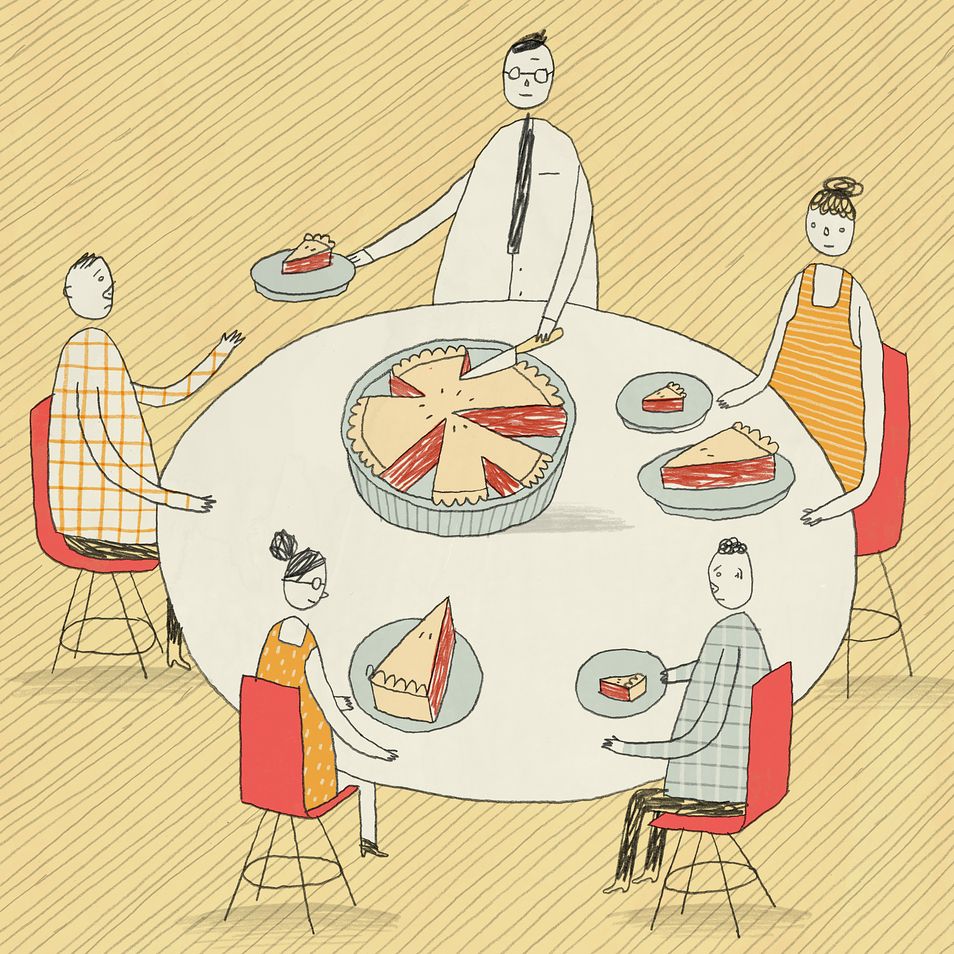
Achieving Equality through transcending Hierarchy
In 2010, when I was about to go to the Netherlands for my one-month internship at ESA, my stepdad told me that I would like it there since communication in NL is far less formal than in my home country, Austria. Indeed, I had already noticed that in my first email exchanges it was normal to refer to each other using our first names. During the years I spent living the Netherlands, from 2013 until 2018, I got used to the flat hierarchical structure and the more informal ways of communication. It just felt natural.
Sometimes, people complained that despite the flat hierarchies widely adopted in NL, there is still a boss who has the ultimate decision power. While that might be true, it is missing the point. Having a boss who has more responsibility and has the last say in decisions doesn’t mean that others are necessarily excluded from the decision-making process. When people talk about the Dutch’s flat hierarchies, they mean exactly that – that everybody can participate in discussions and will be heard. This is based on the famous Dutch polder model based on consensus decision-making and cooperation despite any differences. These differences may not only be in terms of opinion, but also in status: the polder model likely dates back to the middle ages, when farmers and aristocrats alike had to work together in order to build dams.
In addition to the Dutch culture with its polder model, the international environment plays its part in the low-key hierarchical culture that I experienced; in English there is no difference between the familiar and polite form anymore. Calling people “you” and by their first name, however, doesn’t mean we don’t acknowledge our in the respective system that we are navigating or that we don’t have respect for each other. On the contrary, in such international environments there are often people from different cultures respecting each other’s traditions and approaches, while recognising their equality as humans despite different origins and different statuses.
My move from the Netherlands to Germany gave me a bit of a culture shock regarding hierarchical structures. Like in Austria, in Germany traditional hierarchical organisations are the norm. Now that I had seen something different – a way of working together that felt more natural – the hierarchical culture in Germany irritated me. Having a boss is normal, and among researchers our boss also usually listens to what we have to say. What struck me, however, was that the hierarchy didn’t just determine people’s decision power regarding the job, but also extend it to aspects outside the job. For example, at a buffet at the institute it was expected that people higher up the hierarchy would help themselves to food first, while lower ranked people would wait. Isn’t it funny how cultural aspects of the job, such as hierarchy, extend to daily life matters? This is called the Spillover-Effect.
Small habits like waiting for the boss to get his food first may be a sign of respect to some, but they perpetuate a culture of preferential treatment for hierarchical superiors outside job-related matters. If we want to achieve a sense of equality, we should instead be mindful of limiting rank and status to work-related matters to avoid them seeping into our daily interactions (with co-workers).
That is the first step towards a more equal way of working together. The second step is for us all to work towards more democratic work environments, which actually reflect the same values that we would like to live by in our private lives as well. These include equality, participation, and acknowledgement for the other person, regardless of status. Or would you accept being treated by your partner like your boss treats you now?
A more democratic work culture does not mean to entail no hierarchy. A participative work environment transcends hierarchy instead. This entails, first, the acceptance that power and hierarchy always arise in situations where people organise themselves to get things done. Second, transcending hierarchy means to allow hierarchy to arise situational where it makes sense to get things done. For example, if there is this one person in the team who has most experience with a particular matter, it may make sense to elect them for taking on a leadership role for the time being.
I strongly believe that if we, first not let status decide over food intake, and second, transcend status and power, we would achieve a more equal way of living and working together. We’d feel more acknowledged in the way we are and what we can bring. We’d even feel more connected through realising that we are all just human.
Where have you perceived hierarchy seeping into your interactions with co-workers? How does that feel for you? I am curious to read about your experiences in the comments below or via private message 🙂
Written by Julia Heuritsch | Last edited: 16th June 2022